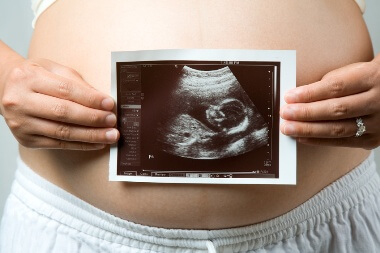Dry Mouth Pregnancy: Understanding the Causes and Solutions

Pregnancy is a time of many changes for a woman’s body, and one of the lesser-known symptoms that some women may experience is dry mouth.
Dry mouth pregnancy is a common condition that is caused by an increase in the hormone progesterone. Progesterone can cause the salivary glands to produce less saliva, leading to dry mouth. This can be uncomfortable and can also lead to other oral health issues.

Symptoms of Dry Mouth Pregnancy
The symptoms of dry mouth pregnancy can include a feeling of dryness in the mouth, difficulty swallowing, and a change in the taste of food. Other symptoms may include bad breath, dry throat, and dry, cracked lips.
Causes of Dry Mouth Pregnancy
As mentioned earlier, dry mouth pregnancy is caused by an increase in the hormone progesterone. This hormone can cause the salivary glands to produce less saliva, leading to dry mouth. Additionally, some women may experience dry mouth as a side effect of certain medications they are taking during pregnancy.

Risks of Dry Mouth Pregnancy
If left untreated, dry mouth pregnancy can lead to other oral health issues. These include an increased risk of tooth decay, gingivitis, and periodontitis. Additionally, dry mouth can make it difficult for a woman to eat and drink, which can lead to dehydration and malnutrition during pregnancy.
Solutions for Dry Mouth Pregnancy
There are several things that women can do to help manage dry mouth pregnancy. These include:
- Drinking plenty of water to stay hydrated
- Chewing sugar-free gum or sucking on sugar-free candy to stimulate the production of saliva
- Avoiding alcohol and caffeine
- Using a humidifier to add moisture to the air
- Avoiding tobacco products
Seeking Professional Help for Dry Mouth Pregnancy
While there are many things that women can do on their own to manage dry mouth pregnancy, it’s also important to seek professional help. This is because dry mouth can be a symptom of other underlying health conditions, such as diabetes or Sjogren’s syndrome. A dentist or other healthcare provider can help to determine the underlying cause of dry mouth, and can provide appropriate treatment.

Coping with Dry Mouth Pregnancy
Dry mouth pregnancy can be uncomfortable and can make it difficult to eat and drink. Here are some tips for coping with dry mouth during pregnancy:
- Keep a water bottle with you at all times and take sips frequently
- Try to eat moist foods, such as fruits and vegetables, rather than dry foods
- Avoid spicy or salty foods, as they can exacerbate dry mouth symptoms
- Use lip balm to keep your lips moisturized
- Try to avoid talking for long periods of time, as this can dry out your mouth
Preventing Dry Mouth Pregnancy
While dry mouth pregnancy is caused by hormonal changes and can be difficult to prevent, there are some things that women can do to reduce the risk of developing dry mouth. These include:
- Staying hydrated by drinking plenty of water
- Avoiding alcohol and caffeine
- Quitting smoking or using other tobacco products
- Practicing good oral hygiene, including brushing and flossing your teeth regularly
Conclusion
Dry mouth pregnancy is a common condition that can be caused by an increase in the hormone progesterone. It can be uncomfortable and can also lead to other oral health issues. However, there are several things that women can do to help manage dry mouth pregnancy, including drinking plenty of water, chewing sugar-free gum or candy, avoiding alcohol and caffeine, using a humidifier, and avoiding tobacco products. If you are experiencing dry mouth during pregnancy, it is important to talk to your healthcare provider about the best course of treatment for you.
Why is my mouth so dry in early pregnancy?
One possible reason for dry mouth in early pregnancy is increased levels of hormones, specifically estrogen and progesterone, which can decrease the production of saliva. Additionally, morning sickness or nausea, which is common during early pregnancy, can also cause dry mouth as it can lead to decreased appetite and less water intake.
Is dry mouth a symptom of gestational diabetes?
Dry mouth is not a common symptom of gestational diabetes, but it can occur as a result of high blood sugar levels leading to increased thirst and dehydration. Other symptoms of gestational diabetes include increased urination, fatigue, and blurred vision.
Is it normal to be very thirsty in early pregnancy?
It is not uncommon for women to experience increased thirst during early pregnancy. This can be caused by hormonal changes which can lead to increased blood volume and dehydration. Also, morning sickness, which is common during early pregnancy, can lead to decreased appetite and less water intake, making you more thirsty. Drinking enough water and other fluids can help alleviate thirst and prevent dehydration. It's important to consult your doctor if you have excessive thirst or other symptoms that concern you.
Can early pregnancy cause dry mouth at night?
Early pregnancy can cause dry mouth at night as it can be caused by hormonal changes, specifically the decreased production of saliva which is a common symptom of dry mouth. Additionally, morning sickness or nausea, which is common during early pregnancy, can also cause dry mouth and can be more pronounced at night. Drinking water before bed and avoiding spicy, acidic or dry foods before sleep can help alleviate the dryness of the mouth. Consult your doctor if the dry mouth is persistent or severe.







